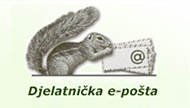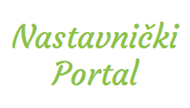TITLE OF COURSE: Research Methodology 8
STATUS OF COURSE/MODULE (REQUIRED/ELECTIVE): Required
NAME OF COURSE/MODULE TEACHER: Ksenija Bašić; Dubravka Spevec; Stjepan Šterc; Ružica Vuk; Ivan Zupanc
LANGUAGE OF INSTRUCTION IN COURSE/MODULE: Croatian, English
NUMBER OF INSTRUCTION HOURS: 12
OUTLINE OF COURSE/MODULE CONTENT
Demogeographical analysis
Spatial distribution, natural movement, structure and composition of the population, trends in the demographical development of Croatia. Identification and evaluation of the demogeographical resources and potential of the settlements, districts, cities and counties of the Republic of Croatia. Analysis of the spatial characteristics of the birth-rate in Croatia at diverse spatial levels. The role of natural movements and migration in reducing the number of Zagreb’s inhabitants. Polarisation of the population development of settlements in the environs of Zagreb. Research Methodology: selection and processing of data collected from statistical and other secondary sources, the descriptive statistical method, empirical research (questionnaires, interviews), graphical method, cartographic method, analysis and visualisation of spatial data in the ArcGIS Programme.
Demogeographical research into problematic areas
Analysis of the characteristics and spatial distribution of the population in problem areas. Concrete application: spatial planning and demo(geo)graphical analyses for remaining application, that is, needs, primarily at the regional and local spatial level of research. Research Methodology: selection and collection of data for demographical research, selection of demographical indicators, descriptive statistical, graphical and cartographic methods.
Demographical processes, Geography curriculum and planning of the educational function (network of schools)
The influence of population aging and depopulation on planning school networks. Characteristics of the schools and enrolment areas as a predictor of success in the Geography study programme. Research Methodology: research at the State and regional level, polling, structured and non-structured interviews, direct observation, qualitative analysis of content, case studies, spatial analysis, cartographic method, parametrical and non-parametrical statistical methods, and visualisation in the ArcGIS Programme.
Population, development and population policies
Geographical theoretical-conceptual approach to population research. Population as the foundation of economic and overall development of Croatia. Demographic revitalization of Croatia as a developmental need. Demographic problems and basic systems in the country. Demographic problems as the foundation of homeland security.
READING LIST
Asche, H., Toskić, A., Spevec, D., Engemaier, R., 2010: The Demographic Atlas of Croatia – A Webbased Atlas Information System, in: Gartner G., Ortag F. (eds.) „Cartography in Central and Eastern Europe“, Berlin-Heidelberg, Springer.
Bašić, K., 2005: Depopulacija u gradskoj regiji Zagreba. "Stanovništvo Hrvatske – dosadašnji razvoj i perspektive" (zbornik radova): 197-209.
Bašić, K., 2005: Polarizacija populacijskog razvoja Zagrebačke gradske regije. Problemi regionalnog razvoja Hrvatske i susjednih zemalja (zbornik radova): 229-236.
Bašić, K., Nejašmić, I., Toskić, A., 2008: Prostorne značajke nataliteta u Hrvatskoj. Hrvatski geografski glasnik 70(2): 91-112.
Cohen, L., Manion, L., Morrison, K., 2011: Research Methods in Education, 7th Ed., Routledge.
Curić, Z., Vuk, R., 2013: Metodika geografije u sustavu odgoja i obrazovanja, u: Metodike u suvremenom odgojno-obrazovnom sustavu (ur. Milanović, D., Bežen, A., Domović. V.), Akademija odgojno-obrazovnih znanosti Hrvatske, Zagreb, 165-195.
Klempić Bogadi, S., Spevec, D., 2014: Demographic reality, perspective and challenges in Croatian hilly-mountain areas – case study Gorski kotar, Proceedings of International Scientific Symposium: Hilly Mountain Areas - Problems and Perspectives, Macedonian Geographical Society, Skopje, 109-115.
Krmac, D.; Zupanc, I., 2012: La popolazione dell’Istria nel censimento del 1857 a livello comunale, u: Prvi moderni popis stanovništva u Istri / Il primo censimento demografico moderno in Istria / Prvi moderni popis prebivalstva Istri: Prispevki s Študijskega dneva / Relazioni della Giornata di studio, Pula - Pola, 31 – 10 – 2007 (ur. Kalc, Aleksej), Histria Editiones; Sveučilište Jurja Dobrile u Puli, Koper/Capodistria, 145-162.
Neewbold, K. B, 2010: Population Geography. Tools and Issues, Rowman & Littlefield Pubishers, Plymouth.
Nejašmić, I., 2005: Demogeografija: Stanovništvo u prostornim odnosim i procesima, Školska knjiga, Zagreb.
Nejašmić, I., Toskić, A., 2013: Starenje stanovništva u Hrvatskoj - sadašnje stanje i perspektive. Hrvatski geografski glasnik 75 (1), 89-110.
Spevec, D., 2011: Prostorne značajke demografskih resursa i potencijala Krapinsko-zagorske, Varaždinske i Međimurske županije, Hrvatsko geografsko društvo, Zagreb.
Spevec, D., Vuk, R., 2012: Demografski resursi i potencijali te organizacija obrazovanja u Krapinsko-zagorskoj županiji, Hrvatski geografski glasnik, 74 (1), Zagreb, 187-212.
Šterc, S.; Brekalo, M. 2016: Imigracija stanovništva – utopijska (sigurnosna) varijanta demografske revitalizacije Europe. // Međunarodna znanstvena konferencija IDENTITETI – KULTURE – JEZICI: Europa u mijeni, progon i egzodus kao univerzalni problem. (prihvaćen za objavljivanje).
Šterc, S., Komušanac, M., 2012: Neizvjesna demografska budućnost Hrvatske-izumiranje i supstitucija stanovništva ili populacijska revitalizacija, Društvena istraživanja, 21(3), 693-714.
Šterc, S. Komušanac, M., 2014: Strateška promišljanja hrvatskih demografa, Zbornik radova znanstvenog skupa „Demografija u Hrvatskoj” povodom 75. obljetnice života i 50 godina rada akademkinje Alice Wertheimer-Baletić, redovite profesorice demografije Ekonomskog fakulteta Sveučilišta u Zagrebu, 10.12.2012. godine, Ekonomski fakultet Sveučilišta u Zagrebu, Katedra za demografiju, Ekonomski fakultet, Zagreb, 143-162.
Vranković, B., Vuk, R., Šiljković, Ž., 2011: Kvalitativna analiza ispita vanjskoga vrjednovanja obrazovnih postignuća učenika osmih razreda provedenih 2008. godine: geografija i integracija nastavnih sadržaja geografije i povijesti, Nacionalni centar za vanjsko vrednovanje obrazovanja, Zagreb.
Vuk, R., Vranković, B., Orešić, D., 2015: Geografija na državnoj maturi (2010. – 2012.) – analize i preporuke, Nacionalni centar za vanjsko vrednovanje obrazovanja, Zagreb.
Vuk, R., Vranković, B., 2016: Utjecaj demografskih procesa na organizaciju primarnoga obrazovanja u Splitsko-dalmatinskoj županiji, Školski vjesnik - časopis za pedagoška i školska pitanja 65, 287-300.
Wertheimer-Baletić, A., 1999: Stanovništvo i razvoj, Mate,Zagreb.
Zupanc, I., 2013: Razvoj naseljenosti na području Općine Vrsar (ur. Milotić, Ivan), Turistička zajednica Općine Vrsar, Vrsar, 503-566.
DESCRIPTION OF INSTRUCTION METHODS
Lectures and consultations. Each course teacher shall deliver 2-4 lectures, depending on the representation of the theme and methodology.
DESCRIPTION OF COURSE/MODULE REQUIREMENTS
Regular attendance at lectures. Giving form to the methodological framework of his/her own research. Fulfilment of obligations shall be confirmed by the course teachers by their signatures in the student’s record book (Index)
DESCRIPTION OF MONITORING OF TEACHING QUALITY
The mechanisms of institutional monitoring of teaching quality (the Regulations on Doctoral Study of the University of Zagreb, Form DR.SC. -04, DR.SC. -09).
ECTS: The ECTS system shall not be applied.




